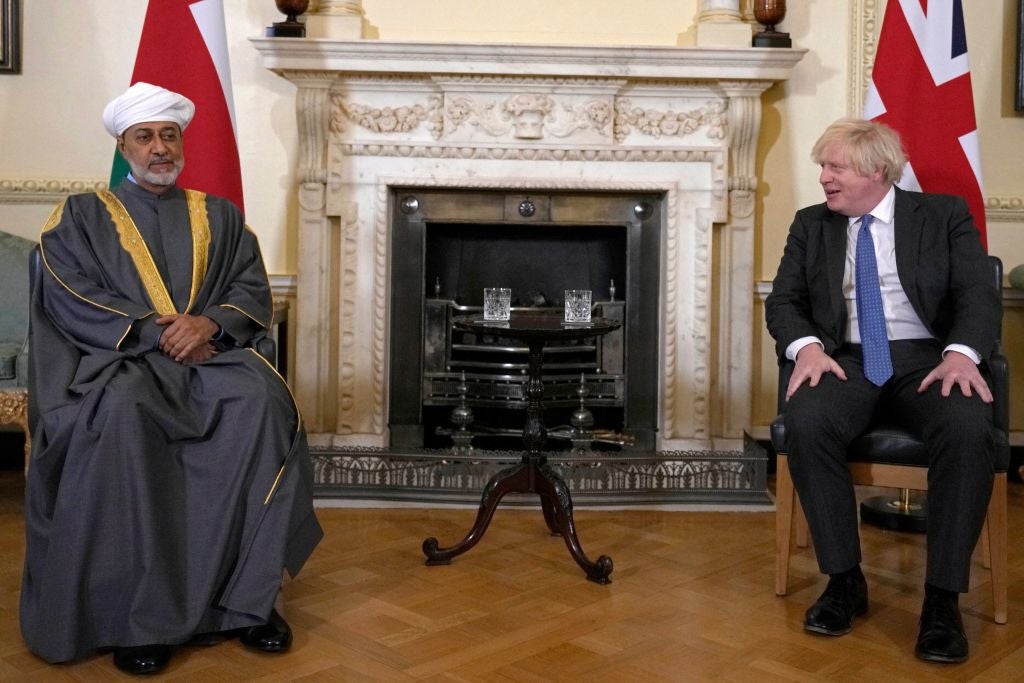
On 11 January, the UK’s Minister for Investment, Lord Gerry Grimstone, signed a memorandum of understanding (MoU) with the president of the Oman Investment Authority, Abdulsalam Al Murshidi. The new agreement, a sovereign investment partnership (SIP), will strengthen economic ties between the UK and Oman by identifying and supporting commercial investments.
“The signing of the MoU is in line with the aspirations of both Oman and the UK as set in the Comprehensive Agreement on Enduring Friendship and Bilateral Cooperation,” said Oman’s foreign minister, Sayyid Badr Albusaidi, in a press release. “We truly believe that by focusing our efforts on strategic joint investments, we will be able to reach further fruitful and tangible outcomes, in support of our mutual desire to continue developing a dynamic and stronger partnership.”

Discover B2B Marketing That Performs
Combine business intelligence and editorial excellence to reach engaged professionals across 36 leading media platforms.
The partnership will focus on several sectors, albeit with an emphasis on clean energy and technology – an important part of the £1bn-a-year ($1.3bn) trading relationship between Oman and the UK, based on 2021 data from the Department of International Trade.
“Our two countries share a vision for a sustainable and prosperous future,” said Lord Grimstone. “This SIP ensures our respective private sectors and international investors are part of that journey.”
UK companies have a long history of investment in Oman, with British foreign direct investment (FDI) accounting for nearly 50% of all international flows to Oman in recent years, according to the Omani National Centre for Statistics and Information.
As a sign of the growing entente between the two countries, UK waste-to-energy pioneer Greenfuels has partnered with 44:01 and other local Omani stakeholders to form Wakud International, a joint venture that has invested about £1.5m into its Oman-based operations since opening shop in 2021.

US Tariffs are shifting - will you react or anticipate?
Don’t let policy changes catch you off guard. Stay proactive with real-time data and expert analysis.
By GlobalDataWakud’s biorefinery at Khazaen Economic City in Oman is the first solar-powered biodiesel plant in the world. It will eventually convert 20 tonnes of used cooking oil per day into European-standard biodiesel; more specifically, road fuel for local consumption or for export to the UK and EU. Expansion out of Oman into the wider Gulf Cooperation Council (GCC) will begin this year, and the partnership has already created new jobs in the region.
The SIP comes as the UK and the GCC, of which Oman is a member, prepare to formally launch talks over a new free trade agreement – an important target for the UK Conservative Party’s post-Brexit ‘global Britain’. Negotiations are expected to commence this year, with a future deal set to boost links in areas such as investment and services.
The UK’s SIP with Oman is the second such agreement in the Middle East, following the success of the first SIP with the United Arab Emirates back in 2021. The UAE agreement saw an initial £1bn pledge (£800m from the UAE and £200m from the UK) to investments across the life sciences.
The UK’s Office for Investment, launched in late 2020 under Lord Grimestone, is likely to agree more SIPs with other countries this year, not least in order to lay foundations for future free trade agreements. As such, they could fast become a signature tactic in the ‘global Britain’ playbook.





